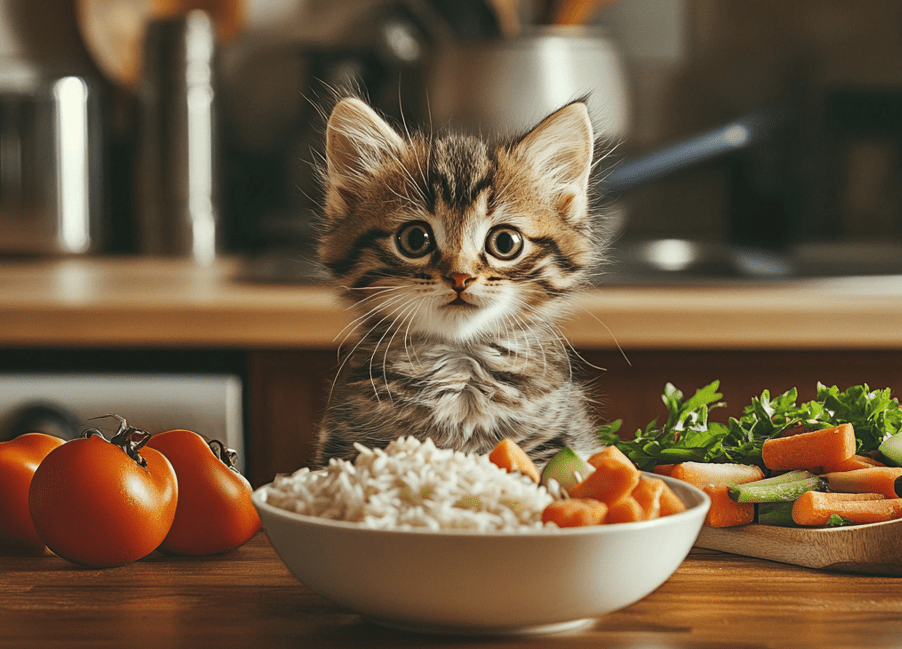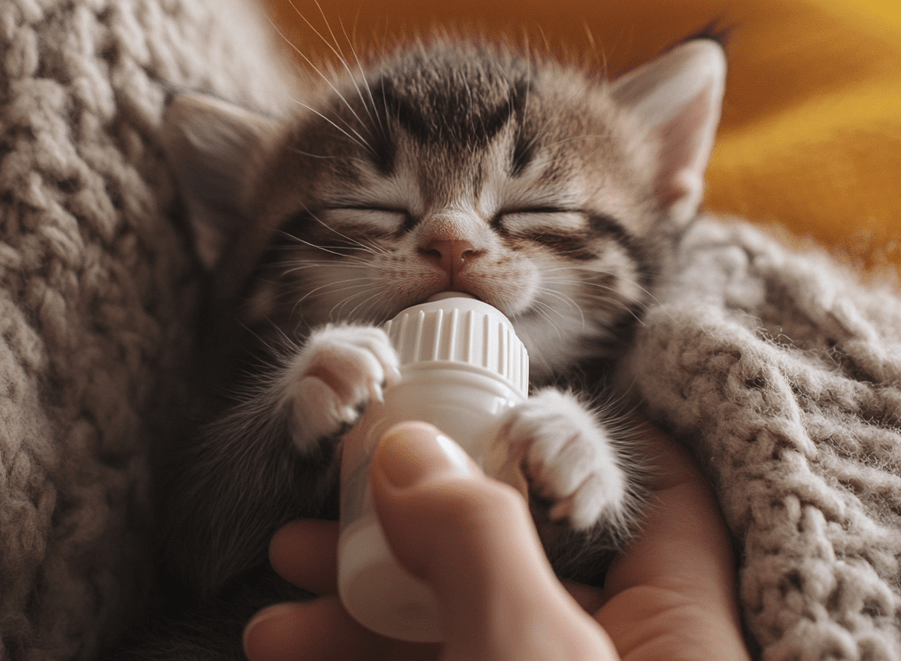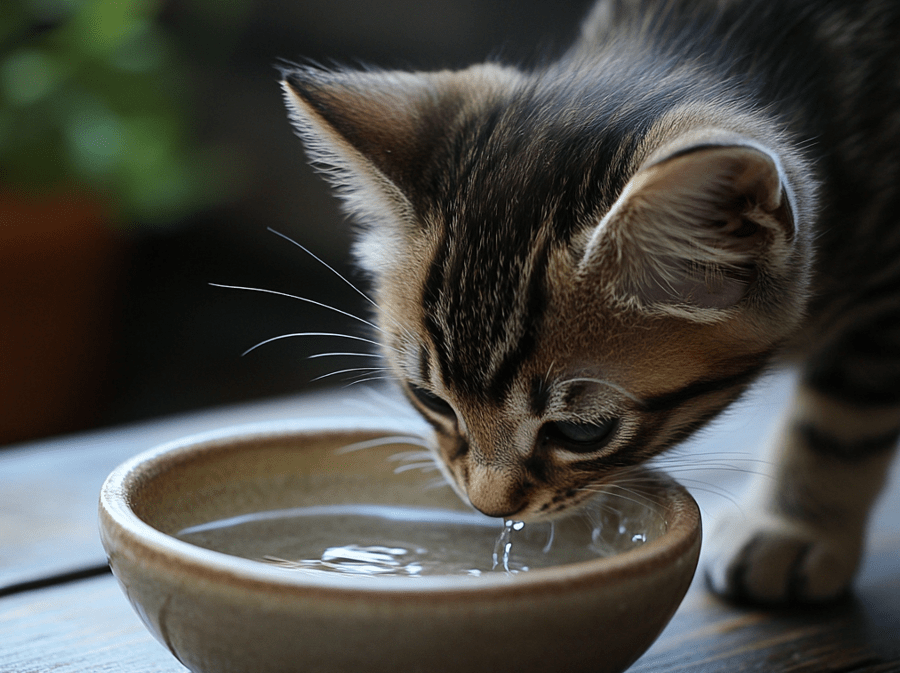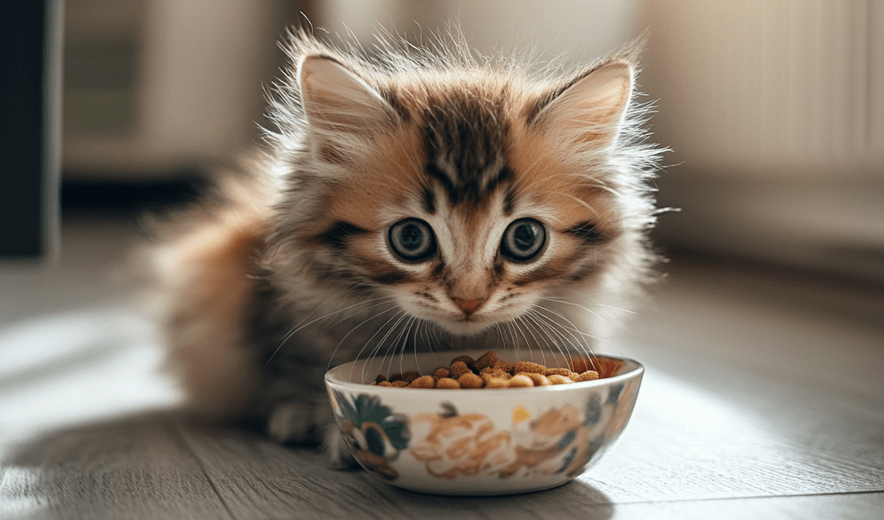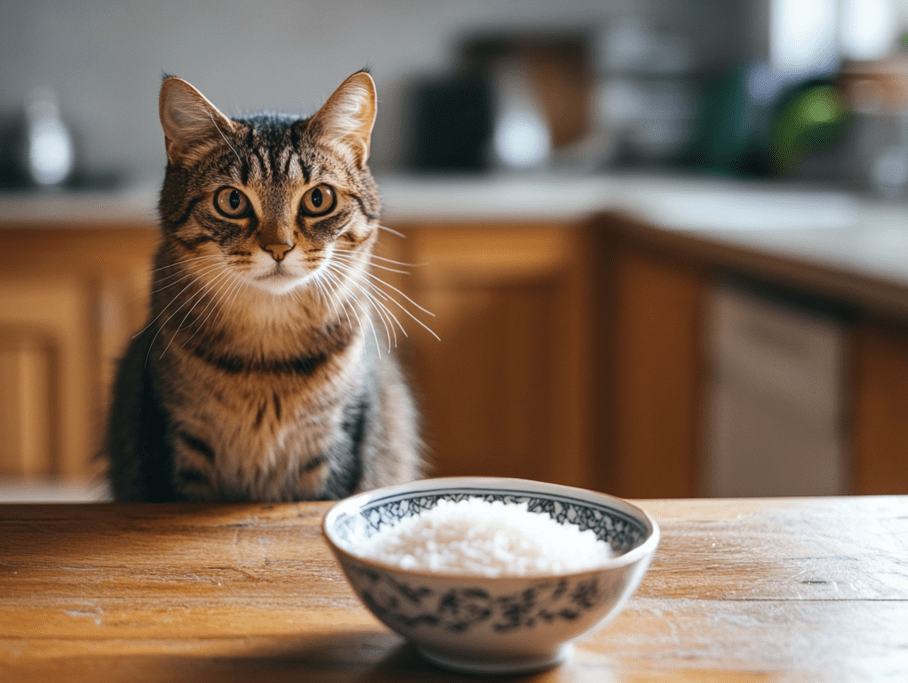
Rice is the most widely consumed grain and a staple in many diets. But you are probably curious as a cat owner if that is safe for your feline friend or helps at all. This makes you wonder if cats can eat rice by itself, or is it good for the pet? And one more thing: does brown rice have benefits over white rice for cats?
While rice has been used in some cases as a part of the diet, it is not considered to be an acquired taste for cats. Cats are obligate carnivores which mean that their main dietary requirements come from animal-based proteins. A carb source, which a cat merrily ignores. On a measurable level, plain cooked rice can help with mild GI disturbances (such as diarrhea) when used in moderation. Brown rice, on the other hand, does have a bit more fiber which may benefit digestion to some extent but it is slightly tougher for your body to digest than white rice.
Always consult your vet before giving rice or any other new food to them, so that they are not misaligned with their health. Of course, rice can never replace a cat’s main diet which is protein but in small amounts it does them no harm.
Pro Tip: Pet insurance can help with covering unexpected veterinary costs. In this way, your cat will always have the best care available to them if and when emergencies come up without adding extreme cost burdens on yourself.
To watch the summary of this article, just watch this video-
Can Cats Eat Rice?
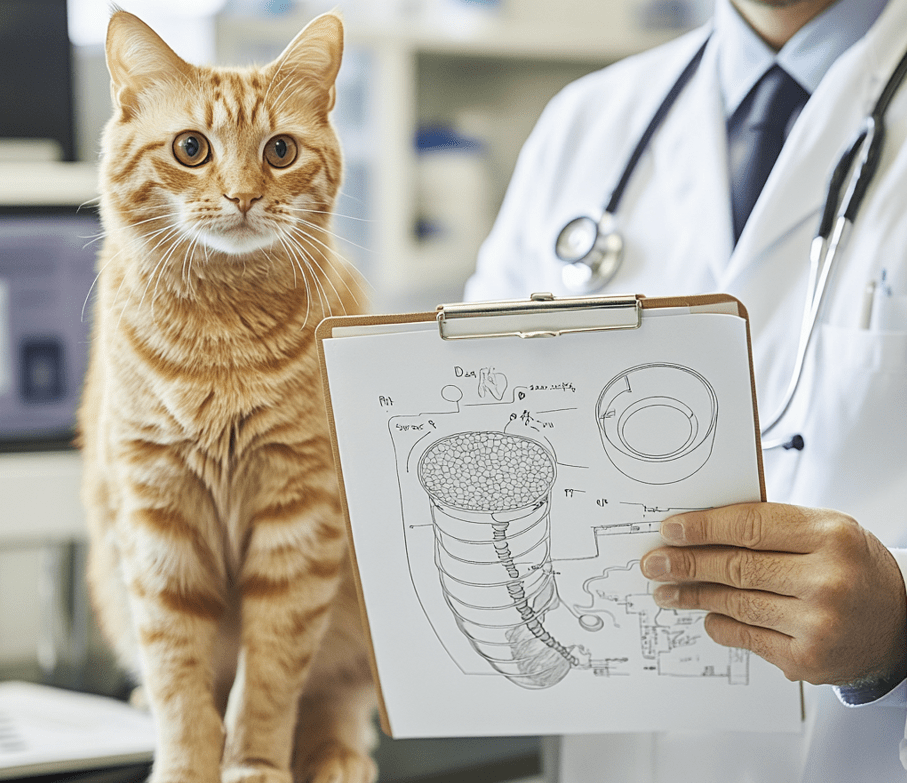
Is It Safe, and Can Kittens Eat Rice? Rice is not toxic to cats but it should only be given in small quantities and if you intend on feeding your cat rice regularly then I would advise against this.
Many cats are obligate carnivores, meaning throughout their entire life they receive everything required nutrient-wise by having room to animal-based foods. Basically, for cats already eating perfectly balanced and nutritious food which is made up of a high-quality commercially produced dry cat kibble or nothing at all, rice probably won’t add anything other than some extra carbohydrates.
However, rice may be recommended in minimal amounts for certain digestive issues like diarrhea (since fiber can aid/worsen stool).
Can Cats Eat White Rice?
This removal of the germ, bran and hull makes white rice have a much softer texture compared to brown rice so it is easier on your teeth too. White rice White is generally considered one of the most bambino-friendly grains due to its mild taste and low fiber content, which makes it easy for your cat to digest.
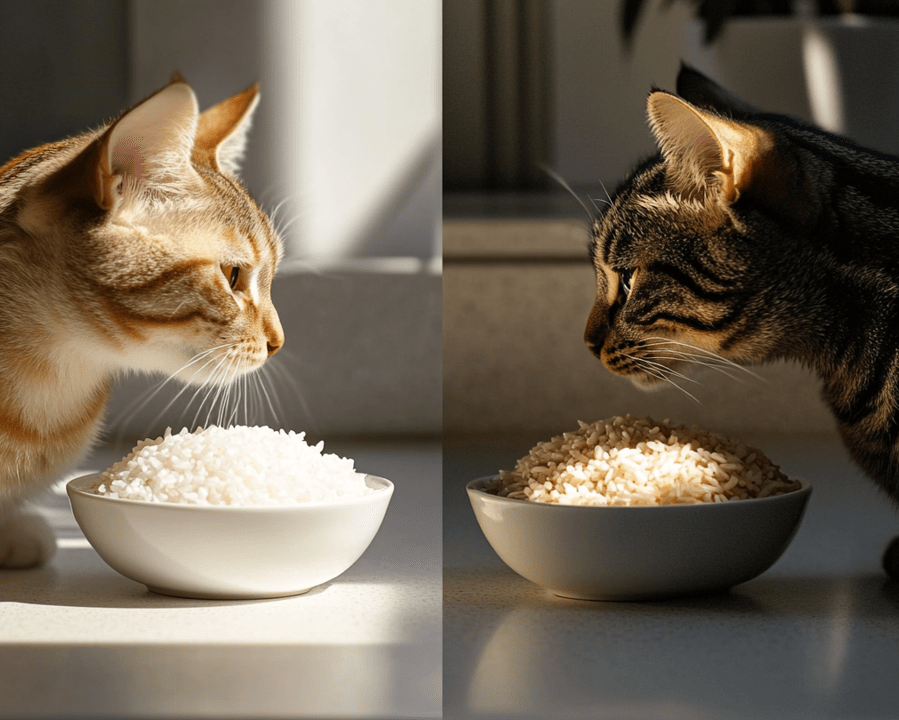
Can Cats Eat Brown Rice?
Brown rice is often preferred for its greater nutritional value (B vitamins, foliate, iron, selenium magnesium potassium and fiber), so this may seem more appealing to human participants than white sugar but not necessarily better adapted from similar qualities as it pertains to the Feline diet. Because the brown rice is not processed as much, cats have a difficult time digesting it and their bodies are likely to absorb almost none of its nutrients except for the fiber.
Both white and brown rice are fine to offer your cat as long as they are cooked, unsalted in moderation. It is considered that dried rice contributes to their diet but it must be only time for another as cat’s based mainly on protein rather than grains.
When Is Rice Bad for Cats?
Most cats are fine to eat small amounts of rice, however there are a few dangers you need to understand:
New Food Sensitivity: Some cats do not take well to new items including grains. Their bodies are shaped to eat meat; obligate carnivores. Rice, if added on a baby’s diet too early can trigger some gastrointestinal (GI) issues like vomiting or digestive discomfort.
Feeding Too Much Rice: Cats that eat a diet especially with more than 25% rice bran can convert into taurine levels and make an adequate dietary deficiency. Your cat can not get taurine from anywhere other than animal proteins. Brown rice is also a good source of fiber, but in excess it will cause your pet diarrhea or constipation.
Uncooked Rice: Raw rice is tough for your cat to digest and will cause more harm than be useful as a result of it may well trigger gastric bloat, fuel or another factor wanted in abdomen ache. It may also include lectin, a natural pesticide that can induce vomiting and diarrhea. Consult a veterinarian immediately if you suspect your cat has experienced bloating or discomfort for more than 24 hours after consuming raw rice.
Never Ever Feed Seasoned or Flavored Rice: If you give rice so make sure it is plain, without any salt and spices of onions, garlic. Onions and garlic can both damage red blood cells and cause oxidative stress. Gastritis and stomach upset: When consumed in excess, garlic may cause gastritis (negative effects of consumption with quantum)Symptoms include nausea, vomiting, diarrhea as well as oral irritation.
Risk of Obesity: Unfortunately, the carbs in rice are going to be bad news for most cats — weight gain is more likely when your feline friend starts eating a carb-rich diet and if she gains enough weight that could quickly lead to obesity-related health conditions like diabetes.
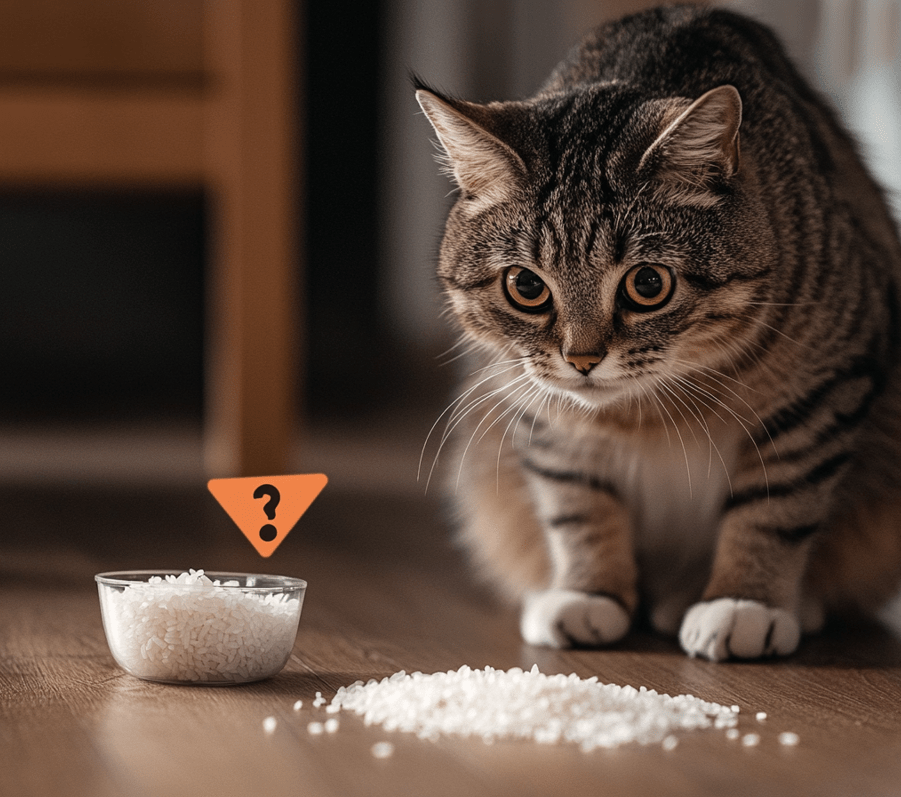
Effect on Kittens: Feeding rice to cats that are kittens can lead to malnutrition. Cats may lose interest in eating the meat that gives them vital nutrients if they are full with rice.
You should not feed your cat any kind of rice without first speaking to a veterinarian.
Pro Tip: Having your cat insured under a pet health insurance plan that offers coverage for feline diabetes can help defray treatment costs as long the issue is not pre-existing. You will have the best protection when you enroll your pet early so that it is never too late for insurance.
How to Feed Your Cat Rice Safely
You must eliminate rice from the feline diet since it does not bring any nutritional value to them, except in cases of initial diarrhea. If you do decide to feed your cat rice, make sure and give only small amounts of it as a special treat. The rice must be plain, cooked well and seasoningless.
Your cat’s meal should contain a maximum of 25% rice and similar grains. If you use rice, make sure meat is at least 50% of the meal. Always read the ingredient list when choosing commercial cat food because even if a meat product is listed first, there could be more grain than you think.
As we have said before, rice has positive effects in treating diarrhea. You can offer both plain brown and white rice in such cases provided that they are cooked properly and served without flavorings. However, with diarrhea a bit of cooked rice mixed into their regular meal can improve digestion and make the stool harder. While there are several other ways to address diarrhea, it is always a good idea to speak with your veterinarian for advice on what you should do.
Safe Substitutes of Rice for Cats
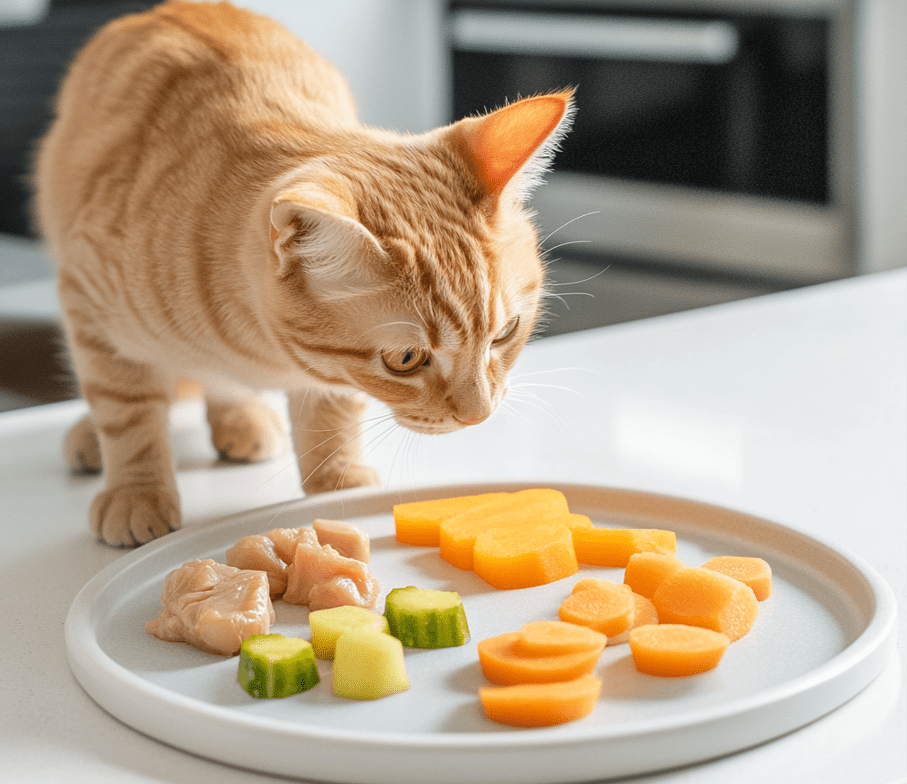
Humans food to share with your cat or not, is a huge debated topic and different options have the best answer. This food you serve to your pet must be plain; it should contain no spices, sugar (see below) or salt that can have toxic ingredients such as onions and garlic.
In general, lean meats like unseasoned chicken (without the skin), beef liver, lamb filet and low-fat deli/processed meat should be safe. Cooked eggs and fish such as tuna or salmon are also recommended. Many cats could also benefit from the addition of certain vegetables, primarily carrots, pumpkin, broccoli and squash. Some fruits which are also safe in moderate amounts include watermelon and blueberries.
Many vets will recommend that you include fiber-rich foods if your cat is suffering from mild diarrhea. Besides rice, pumpkin is one of the ingredients which you can use to provide dietary fibers for your cat’s softer stool. Your veterinarian may also consider diet changes, more water consumption or probiotic supplements and medications such as kaolin-pectin
Key Takeaways
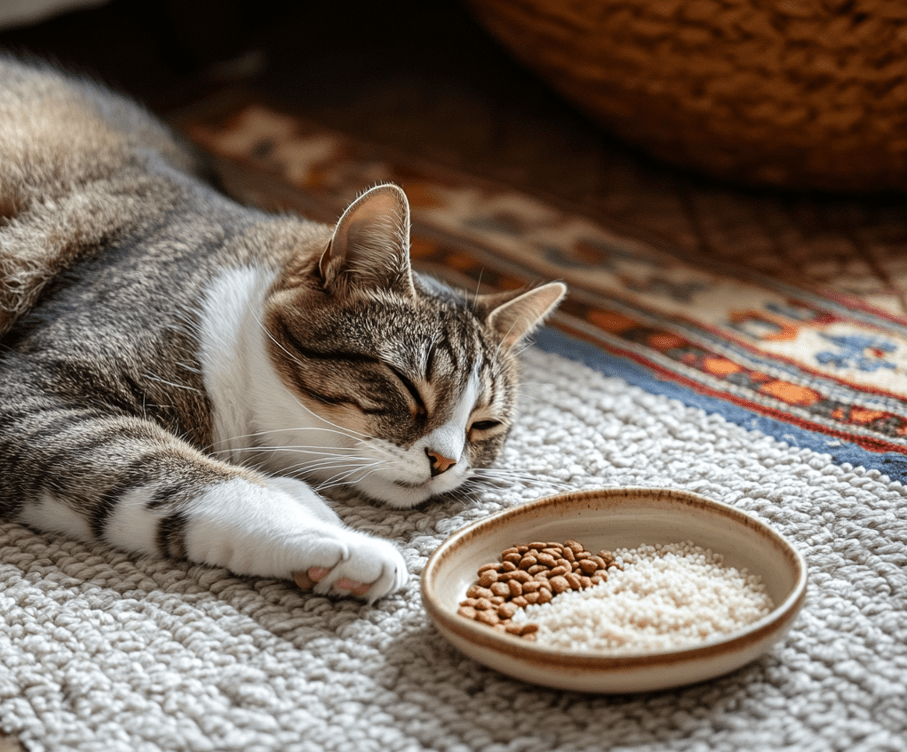
1.Rice is okay to give your cat as a rare treat so long as it is cooked and in moderation.
2.Additionally, the fiber content in rice might help with diarrhea and gastrointestinal problems amongst cats.
3.However, rice is not something cats eat in the wild and probably provides few benefits to them. Cats are obligate carnivores, and the high load of grain in their diet is not natural.
4.As always, consult your veterinarian when considering the addition of rice to your cat’s diet. Occasionally, cats may be sensitive to new foods and develop diarrhea or vomiting.

